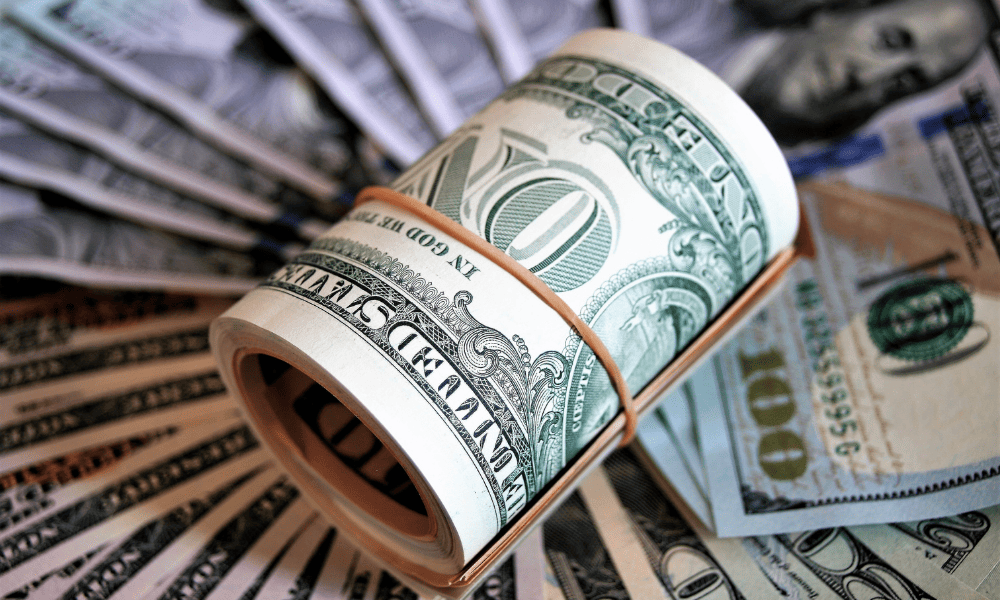
The U.S. dollar edged higher Monday, helped by the strong U.S. jobs data, while the euro edged off Friday’s three-week peak as traders continued to digest the European Central Bank’s hawkish turn.
At 2:55 AM ET (0755 GMT), the Dollar Index, which tracks the greenback against a basket of six other currencies, edged 0.1% higher to 95.615.
The dollar has been helped by Friday’s very strong jobs report, with 467,000 nonfarm jobs added in January.
Way more than expected, while, even more strikingly, the government revised up payroll data for November and December by a combined total of over 700,000.
This has emboldened rate hike expectations, said Marc Chandler, Chief Market Strategist at Bannockburn Global Forex.
“The market sees more than an almost 45% chance of a 50 bp hike in March and nearly 145 bp of tightening over the next 12 months.
At the end of last year, about 85 bp of tightening was discounted.”
These expectations could be bolstered by the U.S. consumer price index due Thursday.
With both the headline and core monthly CPI figures seen rising by 0.5%, resulting in annual numbers of 7.3% and 5.9%, respectively.
Also helping the dollar is its safe-haven status after the White House warned on Sunday that Russia.
Could invade Ukraine any day, with diplomacy struggling to contain the situation even as French President Emmanuel Macron heads to Moscow.
The euro has drifted lower Monday, with EUR/USD trading 0.1% lower at 1.1432, having hit its highest level since mid-January on Friday.
After the European Central Bank expressed more concern over the region’s inflationary pressures than expected last week.
Klaas Knot, the Dutch central bank president and a member of the European Central Bank's Governing Council, continued the theme on Sunday.
Stating that he expects the ECB to raise interest rates in the fourth quarter of this year.
That said, Knot is known as one of the more hawkish members of the ECB's board, and a broader range of members will need to be persuaded before the central bank starts lifting rates.
“The ECB found its inner hawk and joined many other central banks in hinting at tightening ahead.
We note that the inflation outlook remains very uncertain but conclude that market pricing has become too aggressive,” said analysts at Nordea, in a note.
Elsewhere, GBP/USD rose 0.1% to 1.3542, just off the two-week high of 1.3626 reached on Thursday.
After the Bank of England raised rates by 25 basis points, USD/JPY edged higher to 115.23, while the risk-sensitive AUD/USD rose 0.4% to 0.7105.
Rebounding from last week’s selling after Reserve Bank of Australia Governor Philip Lowe preaching patience in terms of rate hikes. - Investing.com